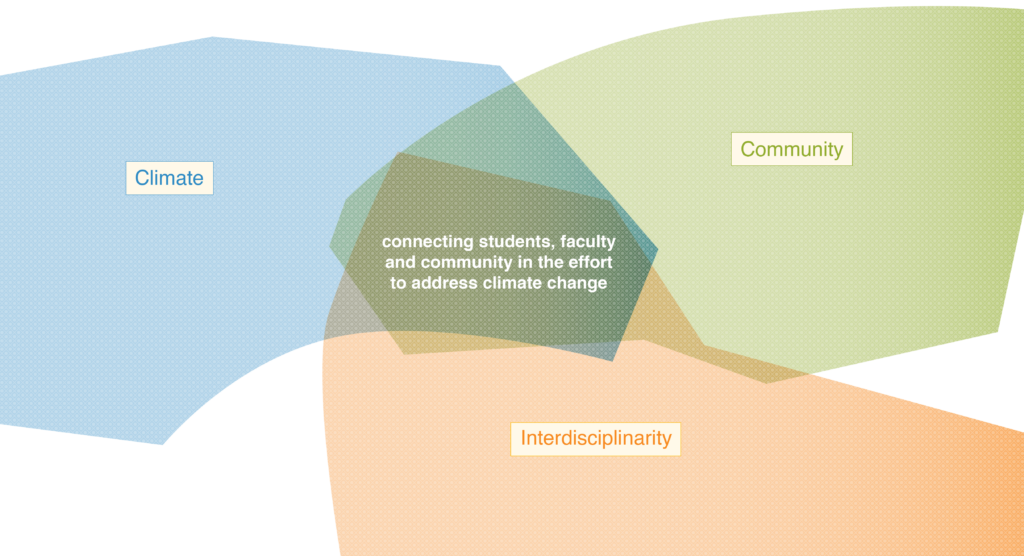
Our Pillars
Climate
Responding to climate change is one of academia’s most urgent challenges. The next generation of researcher-designers are called upon to shape climate-focused, action-oriented mitigation strategies.
Community
Top-down climate change response will not lead to equity, only to crisis and displacement. The expertise of front-line communities, particularly those confronting environmental and racial injustice, must anchor action-oriented research.
Interdisciplinarity
Climate change challenges are too complex to be addressed from a single lens. Action-oriented research needs interdisciplinary framing and multiple skill sets.
RAMP’s model connects faculty and students with local organizations to tackle real-world problems.
The RAMP model is unique in that it seeks a just, equitable, and inclusive pedagogical approach, placing community organizations on equal footing to academic institutions. Research, particularly climate and design research, has a history of being extractive, with institutions parachuting into a region, taking the time and energy of residents and activists, and leaving little behind for the community’s efforts. RAMP follows Pratt’s GCPE ethos of community engagement in that it is diametrically opposed to such extractive measures, redressing this through inclusivity in shaping research goals, deep communication, and participation.
An important goal of RAMP is to build, strengthen and grow partnerships. Partnerships with community organizations are at the heart of how RAMP has successfully driven the mission and vision of the work with equity at the forefront, supporting frontline neighborhoods in their efforts to create climate justice from the ground up. We require all RAMP projects to create a Roles and Responsibilities document with their community partners to guide the work. Successful collaborations will co-develop shared tools and resources that support the community in their leadership efforts on local climate initiatives.
Continuity is also a key element of the work. While students and faculty work on a semester-oriented timeline, communities do not. We recognize the value of fostering deeper relationships that go beyond the academic calendar and include shared memory, skills, data, and tools that enhance student and faculty contributions. Two important aspects of RAMP are the sharing of partnership resources among faculty, allowing for these relationships to grow beyond a single semester, and the fact that studio courses created tools and resources that are shared with our partner organizations, to help further their climate-related efforts.


